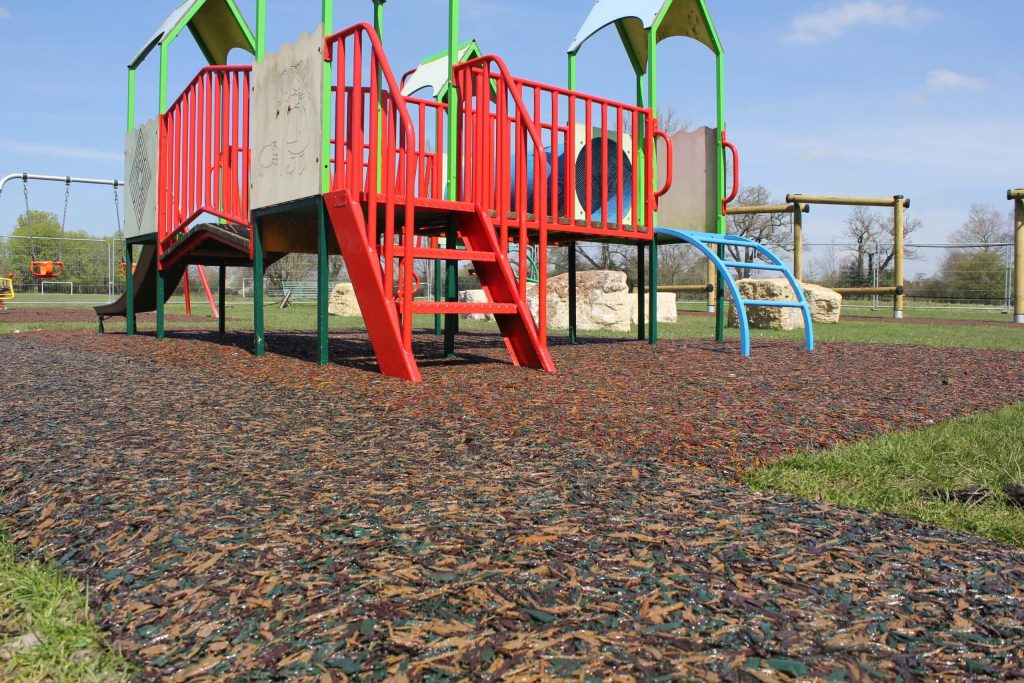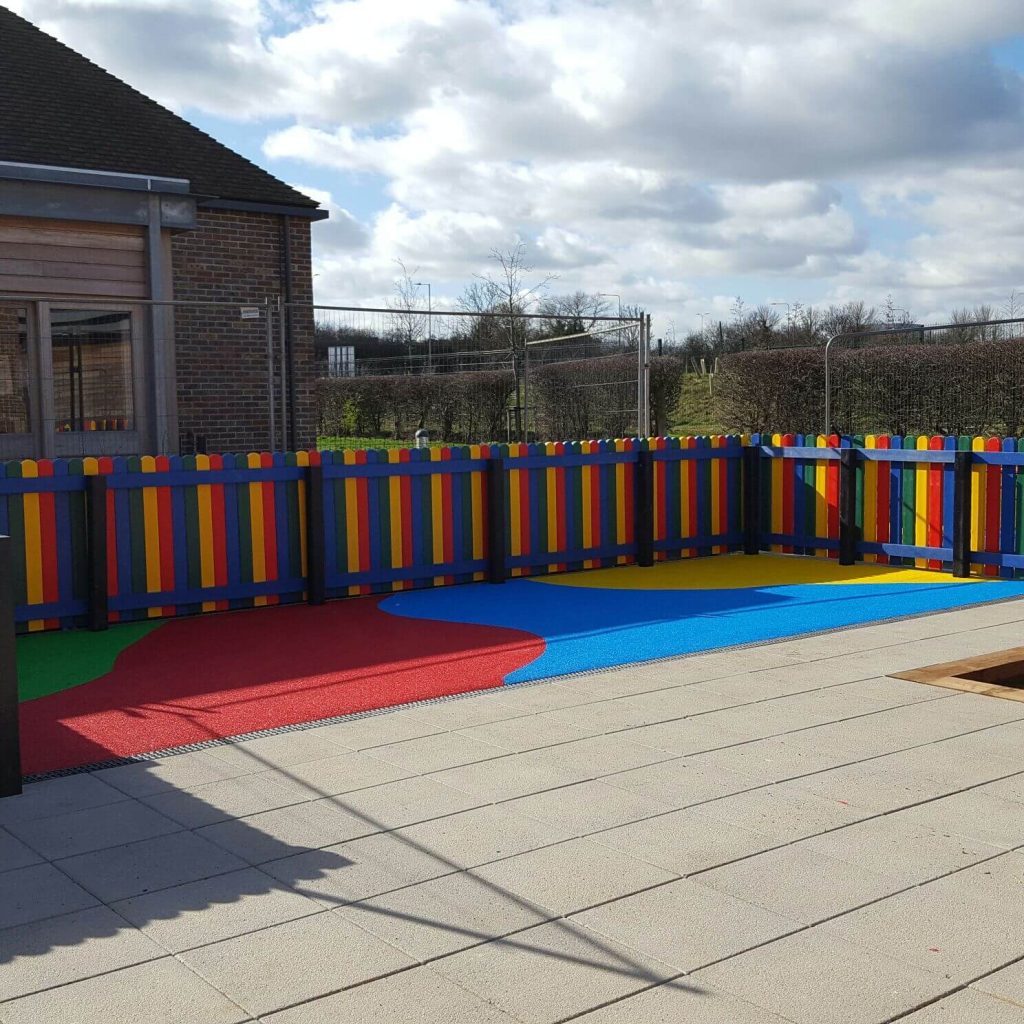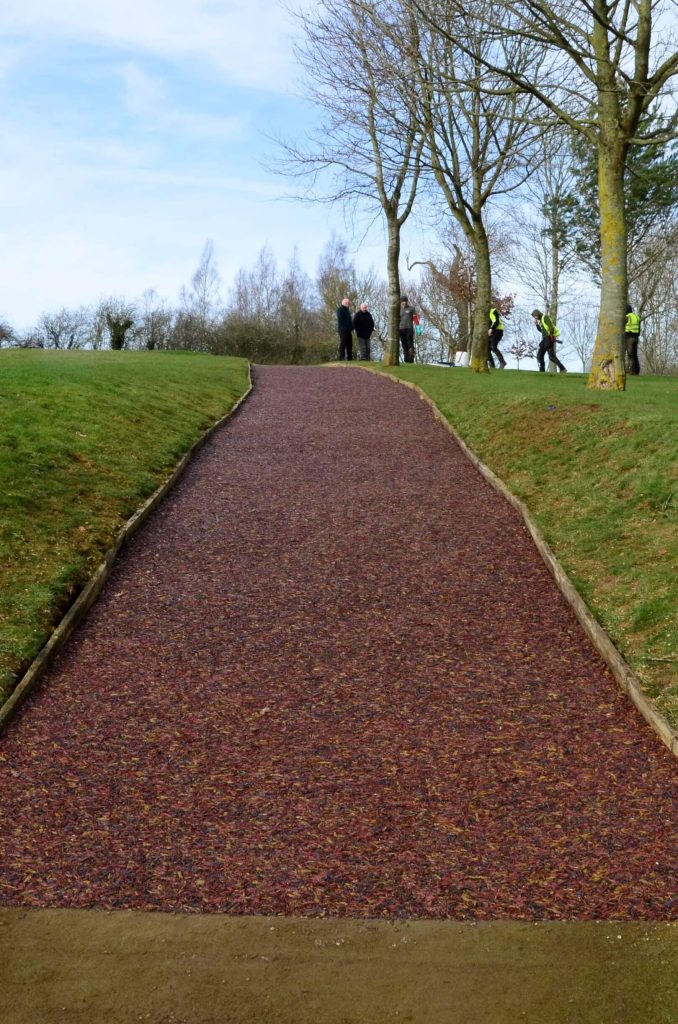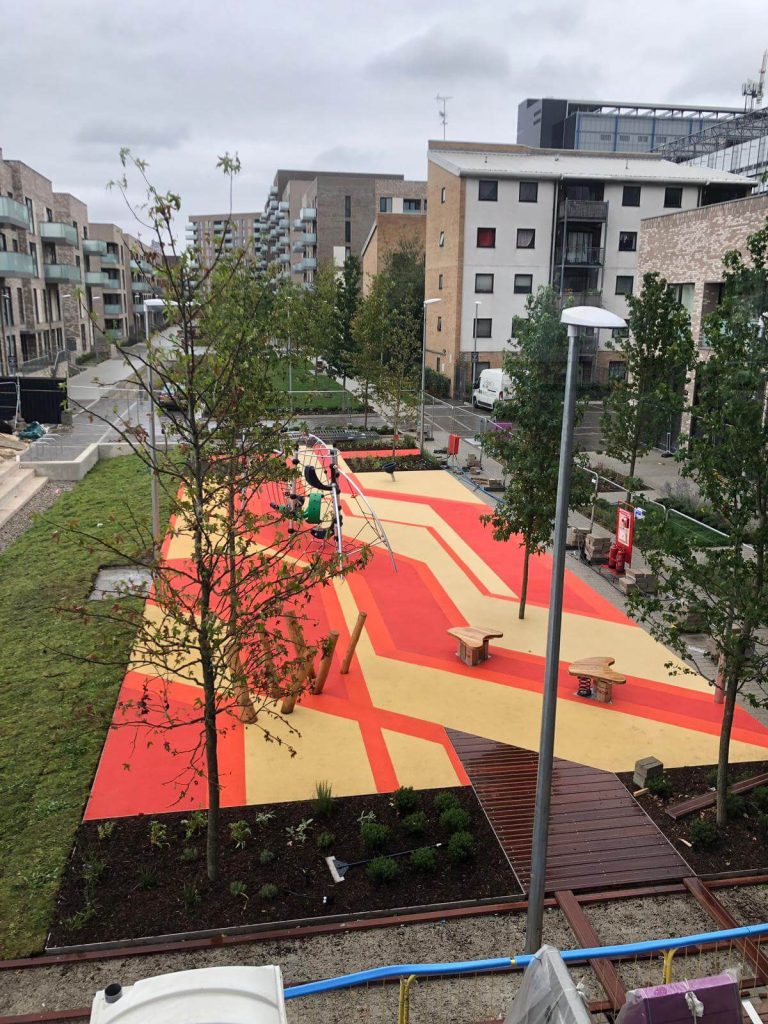Rubber Mulch vs Wet Pour - Which to Choose?
Rubber mulch vs wet pour … What’s the difference between these two rubber playground surfacing products, and which is better?
Rubber mulch is one of the most popular products available on the playground surfacing market. Made from shredded recyclable tyres, it’s a water permeable safety surface with the look of natural bark. It is common in gardens and sustainable landscaping. This is because of its durability and low maintenance requirements, it also has superior weed growth suppression. Rubber mulch doesn’t require replacing like loose fill bark, and we guarantee our JungleMulch to last for at least 3 years.

Wet pour provides a high quality, hard wearing, slip resistant surface that requires little to no maintenance. RubbaSmart, our brand of wet pour is available in various thicknesses dependant on any play equipment in the area. The key benefit of wet pour is that it’s very easy to create complex designs, patterns and shapes. This can help spark the imagination of any children using the play area.

Why choose rubber mulch?
Rubber mulch is vandal-resistant and you can easily kept neat and tidy with minimal upkeep. It is also a cost-effective alternative due to its durability. We therefore recommend it for paths, embankments, play areas, or even weed control. JungleMulch does not require a sub-base, groundworks or edging details, saving money and time during the installation process.
The only downside to rubber mulch (or wet pour) is that it is not suitable for nurseries, or young children. This is because the product can release Carbon Black colour which can stain skin and clothing. This release of Carbon Black happens with every rubber mulch product on the market.

Why choose wet pour?
Wet pour is the number one choice for playgrounds that require complex designs, patterns or shapes. Wet pour is very colourful for a long period of time. It also, offers a safe, non-slip surface which is ideal for playgrounds. Although clients often choose it for its aesthetics, wet pour is a high-quality safety surface. This is because we can install wet pour at varying thicknesses to provide a range of Critical Fall Heights.
The only downside to wet pour is it can often be out of budget; however, you should always consider the costs over the expected lifetime of the surface. Wet pour may also shrink over time around the edges of the play area. However, we can easily fix this problem through wet pour repairs.

Rubber mulch vs wet pour ... which is better?
Both options are equally good in their own right! The best product for you entirely depends on what you’re trying to achieve with the playground. Are you wanting apattern design and long-lasting bright colours? Wet pour is the best option. Are you looking for a more natural aesthetic or a product that can suppress weeds? Choose rubber mulch. Needing slip resistant surface that’s suitable for nurseries and younger children? Wet pour is better. And if you’re installing a pathway or trail and don’t want to carry out ground works, rubber mulch is better.
Rubber mulch vs wet pour, both are great! Whichever you choose, we hope this post helped you understand the difference between them and the key benefits of each.
Are you looking to get a quote or have any questions? Feel free to call us on 01564 742811 or email info@playsmartuk.co.uk.


Really informative read! I feel another advantage of wet pour is that it can be installed over slopes, mounds, or contours. This creates great visual and sensory impact. Although they are expensive, the benefits feel worth it!
How much for a rubber mulch surface of 4.5mx3m in a residential garden?